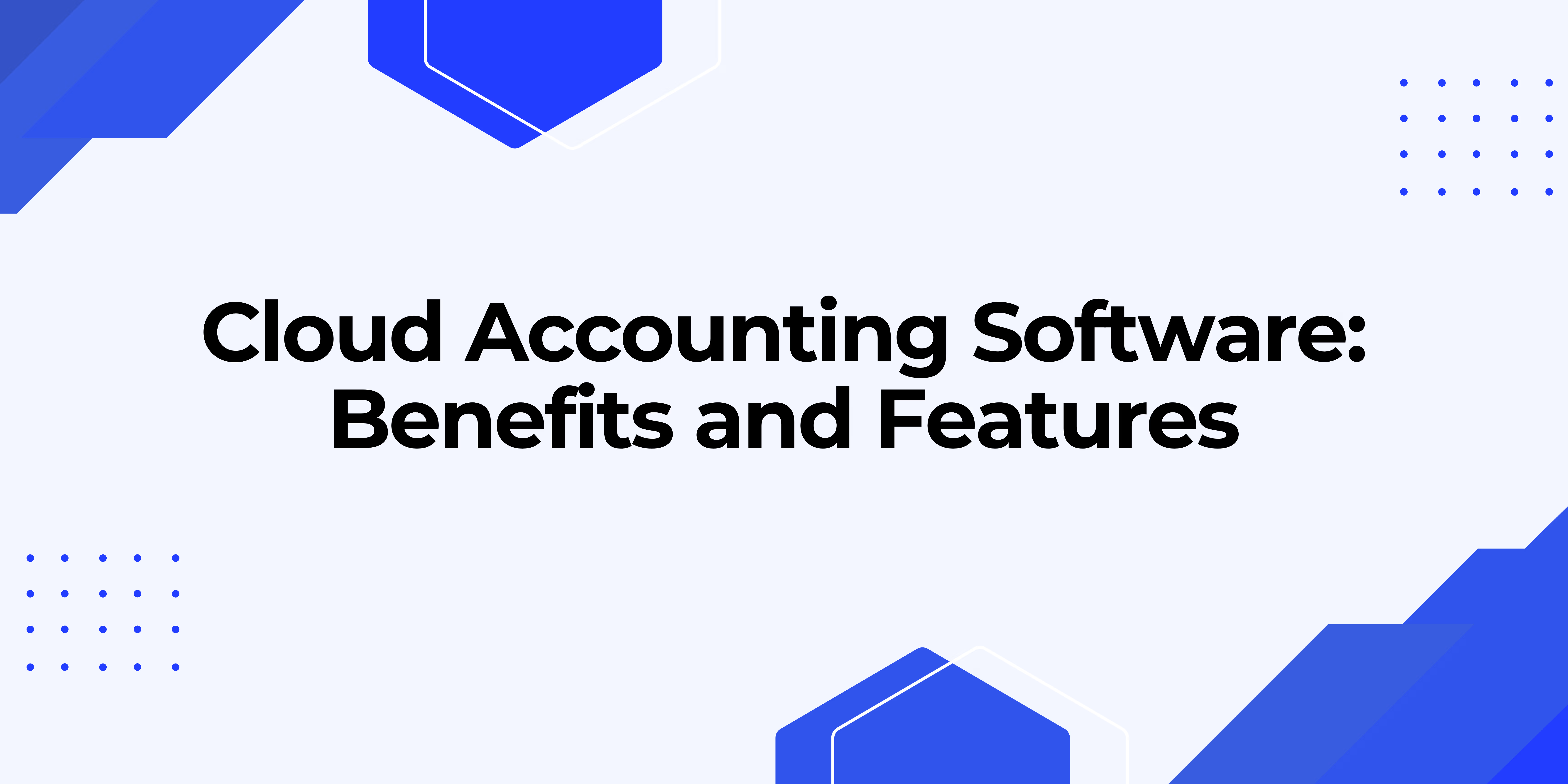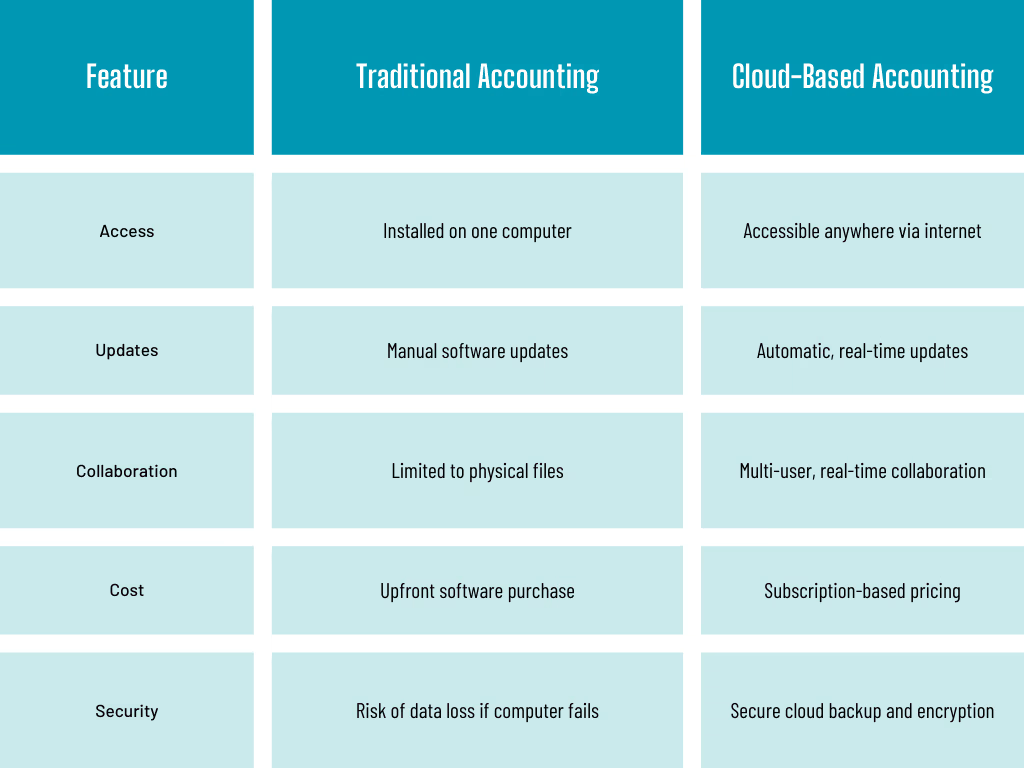
Have you ever felt buried under spreadsheets, paper invoices, or endless email threads with your accountant? If so, you’re not alone. Small business owners, freelancers, and even large companies often struggle to keep finances organized. That’s where cloud-based accounting software comes in, a modern solution designed to make managing money simpler, faster, and smarter.
In this guide, we’ll answer the big question: what is cloud accounting, and why does it matter? You’ll learn how cloud-based tools work, the benefits they bring, and how to choose the right software for your business. Whether you’re running a side hustle, scaling a startup, or managing an established company, this guide will show you how to unlock the power of cloud accounting software.
At its core, cloud-based accounting software is a digital tool that helps you manage your business finances over the internet. Instead of installing heavy software on your desktop or manually crunching numbers in spreadsheets, you access your accounting system online, anytime, anywhere.
This type of software is hosted on secure servers in the “cloud,” which means your financial data is stored safely off-site and updated in real-time. All you need is an internet connection to log in from your laptop, tablet, or smartphone.
In simple terms, cloud accounting is bookkeeping made accessible, automated, and flexible.
The concept might sound technical, but the process is surprisingly straightforward. Here’s how accounting software cloud based typically operates:
To better understand what is cloud accounting, let’s compare it with traditional accounting methods:

The difference is clear cloud solutions bring flexibility, security, and efficiency that traditional systems can’t match.
Read More: AI in Accounting: Practical Applications, Trends & Tools
Switching to cloud-based accounting solutions offers numerous advantages for businesses of all sizes.
1. Access Anytime, Anywhere
Whether you’re at home, at a client meeting, or traveling, your financial data is just a login away.
2. Real-Time Insights
See updated cash flow, expenses, and revenue instantly. No waiting until the end of the month.
3. Automation Saves Time
Automate recurring invoices, expense categorization, and bank reconciliations. Less manual work, fewer mistakes.
4. Enhanced Security
Data is encrypted and stored on secure servers with automatic backups much safer than relying on one laptop.
5. Collaboration Made Simple
Your accountant, bookkeeper, or team members can access the system at the same time, reducing delays.
6. Cost-Effective
Instead of paying thousands upfront for licenses, most cloud accounting software works on affordable monthly subscriptions.
Meet Alex, a small e-commerce store owner. For years, he used spreadsheets to track inventory and invoices. It worked, until his business grew. Suddenly, he was spending hours each week trying to match bank statements with sales, often making mistakes that cost him money.
When Alex switched to cloud-based accounting, everything changed. His sales platform integrated directly with his accounting software, expenses were tracked automatically, and he could see profit margins in real-time. Best of all, his accountant could log in directly, no more sending files back and forth.
For Alex, the benefits of cloud accounting weren’t just convenience, they were a game-changer for growth.
Not all software is created equal, but most top platforms share these core features:
Essentially, if you manage money (and who doesn’t in business?), you can benefit from cloud-based accounting software.
While the benefits are clear, it’s important to note some challenges:
The key is to weigh these against the many advantages to decide if cloud-based solutions are right for you.
Sometimes you’ll see different terms floating around:
In practice, they’re often used interchangeably.
When evaluating options, ask yourself:
Cloud accounting isn’t just a trend, it’s the future. Expect to see:
For businesses embracing digital transformation, cloud-based accounting software will be a cornerstone.
What is cloud accounting?
It’s managing your financial data using internet-based software instead of traditional desktop tools.
Is cloud accounting safe?
Yes. Data is encrypted, stored securely, and regularly backed up.
How much does cloud-based accounting software cost?
Plans range from free (Wave) to $30–$70 per month (QuickBooks, Xero).
Who should use cloud accounting software?
Freelancers, small business owners, startups, and growing companies of all kinds.
Can I access my data offline?
Most systems require internet, but some offer limited offline features.
At the end of the day, cloud-based accounting software is about freedom, freedom from paperwork, from outdated systems, and from the stress of managing finances manually. It gives you real-time insights, keeps your data secure, and saves you hours that could be spent growing your business.